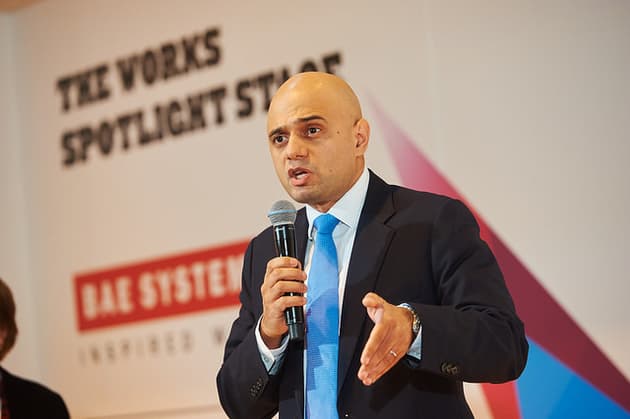
Worcestershire buried report raising “urgent” concern over finances
Fifth county council at risk with independent reviewers stating need for “radical overhaul”
Worcestershire County Council buried a report by independent experts which called for it to take "urgent" action to address its finances, the Bureau of Investigative Journalism has learned.
The review criticised the local authority’s financial planning as “overly optimistic”, “counter-intuitive” and in need of “radical overhaul”. A senior member of the council described the decision not to share the findings with all councillors as “diabolical”.
Worcestershire is the fifth county council identified by The Bureau as showing similar signs of financial distress as crisis-hit Northamptonshire, a Conservative council which banned almost all new expenditure in February after being unable to balance its books.
According to official figures, the council - which counts secretary of state for Housing, Communities & Local Government Sajid Javid as one of its MPs - has had a 47% drop in their “rainy day funds”, the usable reserves that can be used to balance the council’s books, in the last five years. It has also regularly overspent in children services over the past three years, according to Bureau analysis. Following a damning Ofsted report last year, their children’s services have been taken out of their control.
Andrew Gwynne, Labour’s shadow secretary for Communities and Local Government, MP for Denton and Reddish, told the Bureau:
“A Conservative council [Northamptonshire] has gone bankrupt and now this mess is happening in Worcestershire, the secretary of state’s own council. How much longer can Sajid Javid ignore this crisis? This government’s failings have forced many authorities to struggle to maintain basic services after their funding was cut to the bone.”
The Chartered Institute of Public Finance and Accountancy (CIPFA), which undertook the assessment, calculated the council’s plans could leave it with a funding black hole of as much as £26.4 million in the current financial year.
But the findings, obtained by the Bureau via the Freedom of Information Act, were not shared with all councillors or the wider public ahead of the 2018/19 budget vote earlier this year.
Peter McDonald, leader of the council’s Labour opposition group, said neither he nor other Labour councillors had knowledge of the report before being contacted by The Bureau.
“It’s absolutely diabolical,” he said.
“At a time when we are having services cut year-on-year, we’re seeing hundreds of people dismissed from their jobs and work has been outsourced to private companies, this report was made and we were never informed of what it said. Had we been then we would have been making the correct noises to bring it to the attention of the ratepayers just how bad the financial position of the council is.”
 The secretary of state for Housing, Communities & Local Government, Sajid Javid, is also the MP for Bromsgrove in Worcestershire
Professional Images / @ProfImages via Flickr under Creative Commons
The secretary of state for Housing, Communities & Local Government, Sajid Javid, is also the MP for Bromsgrove in Worcestershire
Professional Images / @ProfImages via Flickr under Creative Commons
‘Radical overhaul’
In June 2017 the council paid more than £30,000 for CIPFA, a leading accountancy body, to conduct a review of its medium-term financial plan and cost-cutting strategy.
CIPFA then gave a presentation to what the council described as “an internal meeting of Cabinet and Strategic Leadership Team”. This was the document provided to The Bureau.
The inspection team described the council’s future “transformation savings” - the main way in which it plans to balance its books - as “overly optimistic”. At the time the council was in danger of being £10.2m short of its £21.3m cost-cutting target.
CIPFA questioned why the forecast increase in demand for services was 2.5 times larger than the expected growth in resources. A more realistic assessment of the council’s finances projected an additional £26.4m gap in 2018/19 with a rise to £60.1m by 2020/21.
Plans to keep council tax increases below the maximum possible were described in the report as “counter-intuitive” given the situation facing the authority.
Worcestershire has since set its budget for the current financial year, including a total council tax increase of 4.94%, still less than the maximum allowed without a referendum, and spending ‘reforms’ totalling £31.6m - the equivalent of almost 10% of its current budget.
Make change possible
Investigative journalism is vital for democracy. Help us to expose injustice and spark change
Click here to support usNo sense of urgency
CIPFA also expressed concerns about attitude within Worcestershire’s leadership team, calling for a “sense of urgency appropriate to the real challenge”. This echoed the problems at Northamptonshire, where an independent inspection concluded in March that the council’s financial crisis had been caused by the complacency of senior officers and said “living within budget constraints is not part of the culture”.
The Worcestershire report made a number of recommendations including a “radical overhaul” of the savings programme and that the council needed to “urgently consider short term initiatives” such as a targeted staffing freeze. The Bureau asked the council whether the latter measure was introduced but did not receive a response.
The inspectors called for the council’s then chief financial officer Sean Pearce to be given more support because it was “simply not possible” for him to deliver the required changes. In July 2017, a month after the review he commissioned, Mr Pearce left for another job.
CIPFA also suggested the council needed to agree a "nowhere to run, nowhere to hide" financial scenario at the next cabinet meeting in June 2017. But the matter was never raised in public. The revised budget gap was instead discussed at an “internal meeting”, the council told the Bureau this week.
McDonald said: “We have a council that is refusing to tell people the truth, with the truth being the finances of the county are a serious mess and things will only get worse.”
“I think the council needs to open up, tell the public the true position of its finances and call the government commissioners in.”
Worcestershire said it had acted on CIPFA’s findings by investing an additional £10.5m in children’s social care and £7.8m in adult social care this year.
A spokesperson said: “We commissioned an independent financial resilience review from CIPFA in the summer of last year.
“The review was requested to inform our budget planning.
“The approach taken by the council was in line with the CIPFA advice and also helped us plan to shape how we moved forward with our medium term financial plan."
“Despite the budgetary pressures, we are in a robust financial position and a balanced budget for 2018/19 was approved by councillors in February.”
How are councils independently reviewed?
A Financial Resilience Review is a service by which local authorities pay for CIPFA, or an equivalent organisation, to independently assess the strengths and weakness of their finances.
The process involves an onsite assessment by a small team of experts who test the council’s financial projections and money-saving proposals, as well as short and medium-term prospects.
The findings are then provided to senior council officers in the form of a report or presentation. It is up to each authority whether this report is published.
CIPFA, which charges around £30,000 per review, declined to reveal how many reviews it has undertaken, or whether the number of requests has increased, on the grounds of commercial confidentiality.
The Bureau submitted freedom of information requests to all 353 local authorities in England asking about reviews undertaken in the last five years.
So far five local authorities have confirmed they commissioned CIPFA to undertake a review since November 2016: Torbay, Lambeth, South Ribble, Worcestershire and Surrey - the latter being a county council we previously reported on for it’s severe financial issues.
Warrington said it had requested three such reviews from Moody’s Public Sector Europe since 2015, at a cost of £152,864, £42,723 and £34,800 respectively. It declined to release the reports under FOI do to their “commercially sensitive nature”. In May 2017, Moody’s downgraded the council two notches on its credit rating due to its “risk appetite” and “projected increased debt burden”.
Waltham Forest, in London, commissioned an assessment by accountants Grant Thornton in October 2017. It has yet to publish the report.
Get the data
Has your council undergone an independent financial review?
Access the data and our reporting guide hereHeader picture of Worcestershire County Hall by Worcester News





